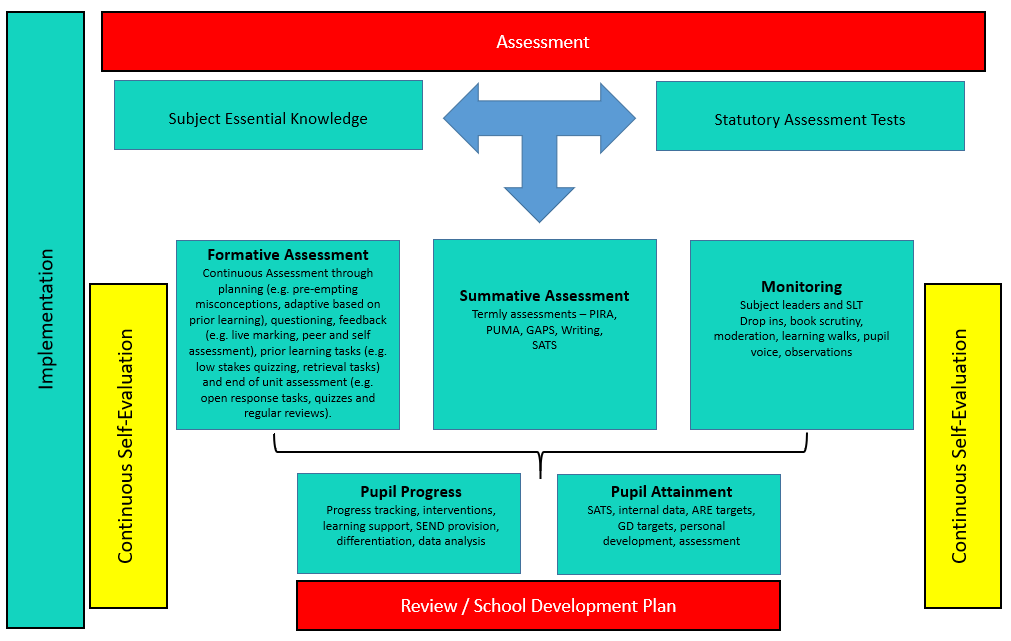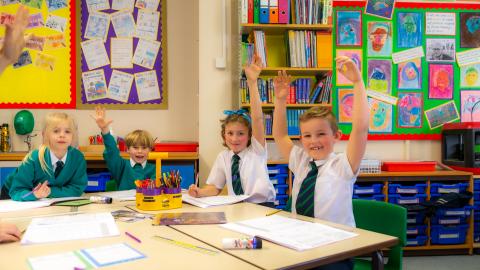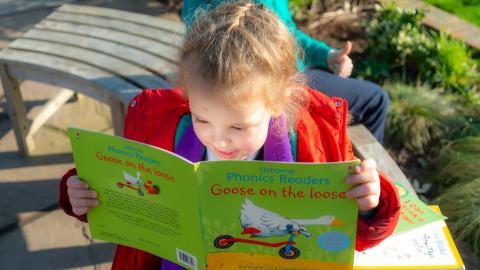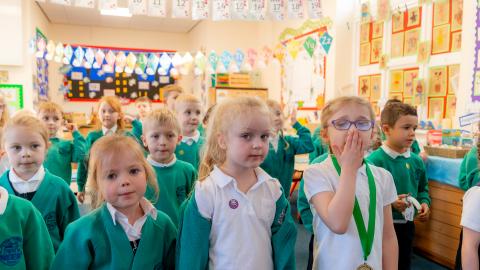
Our approach to assessment
Assessment is integral to high quality teaching and learning within an aspirational curriculum. It helps us to ensure that our teaching is appropriate and that learners are making progress against key curriculum concepts and knowledge. All staff are regularly trained in our approach to assessment and teaching approaches which are underpinned by research.
Our method of assessment
Assessment serves many purposes, but the main purpose of assessment in our school is to help teachers, parents and pupils plan their next steps in learning. We also use the outcomes of assessment to check and support our teaching standards and help us improve. We assess pupils against assessment criteria, which are short, discrete, qualitative and concrete descriptions of what a pupil is expected to know and be able to do. Assessment criteria are derived from the school curriculum, which is composed of the National Curriculum and our own key knowledge essentials. Assessment criteria for periodic assessment are arranged into a hierarchy, setting out what children are normally expected to have mastered by the end of each year. The achievement of each pupil is assessed against all the relevant criteria at appropriate times of the school year. Each pupil is assessed as either ‘emerging’, ‘expected’ or ‘exceeding’. Where a pupil is assessed as expected in the relevant criteria in a subject for that year provision will be made to deepen their understanding so that they have excellent conceptual knowledge that they can apply in many different scenarios. Assessment judgements are recorded and backed by a body of evidence created using observations, records of work and testing. Assessment judgements are moderated by colleagues in school and by colleagues in other schools, the local authority and across local networks to make sure our assessments are fair, reliable and valid.
Our use of assessment
Teachers use the outcomes of our assessments to summarise and analyse attainment and progress for their pupils and classes. Teachers use this data to plan the learning for every pupil to provide every opportunity for them to meet or exceed expectations. Teachers and leaders analyse the data across the school to ensure that pupils identified as vulnerable or at particular risk in this school are making appropriate progress and that all pupils are suitably stretched. The information from assessment is communicated to parents and pupils on a regular basis through meetings with parents and pupils. Parents and pupils receive rich, qualitative profiles of what has been achieved and indications of what they need to do next. We celebrate all achievements across a broad and balanced curriculum, including sport, art and performance, behaviour, and social and emotional development.
Discussions with Parents / Carers
In the autumn term, in preparation for the first parents meetings, the teachers will have had an opportunity to develop an understanding of how the children are working. By using their professional knowledge and judgement and the evidence in children’s work, teachers will know what the children can already do and what they think the children can achieve. Targets will be set to ensure high expectations.
During the year, you will be told whether your child is on track to meet their end of year target. Discussions will be based around the work children have completed and the assessment information within books. This will ensure that discussions focus exactly on what knowledge and skills your child has and what they need to develop.
Statutory Assessment and Accountability
In line with government requirements, we will undertake statutory assessments. These include:
- EYFS Baseline.
- EYFS statutory end of year assessment.
- Teacher assessment at the end of KS1 informed by optional tests.
- National tests at the end of KS2 in mathematics, reading, GPS, and a teacher assessment of mathematics, reading, writing and science.
- A phonics check at the end of Year 1.
- A multiplication check in Year 4



